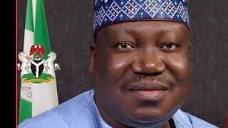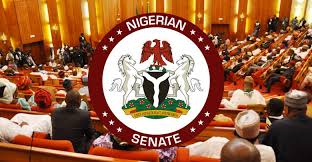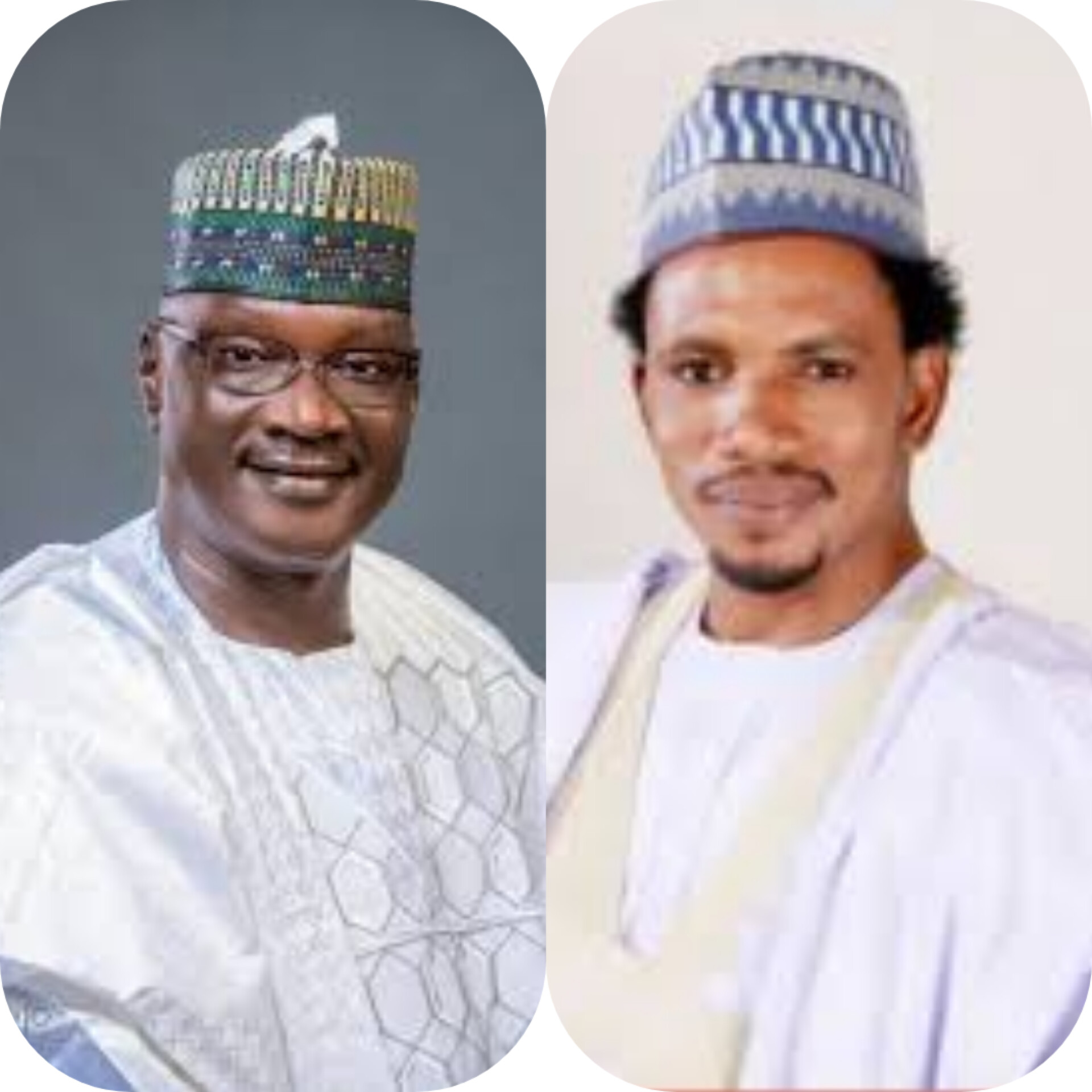The President of the Senate Ahmad Lawan on Tuesday received President Muhammadu Buhari’s letter which had been in the realm of speculation for some time.
Uncertainty had trailed President Muhammadu Buhari’s response to the electoral act ammendment bill 2021 after the National Assembly had passed it and transmitted to the presidency.
At plenary on Tuesday Lawan recieved the letter explaining his decision to withhold presidential assent to the Electoral Act (Amendment) Bill 2021 passed by the National Assembly.
President Buhari’s position was conveyed in a letter addressed to the Senate President, Ahmad Lawan, and read during the start of plenary after the chamber came out from a closed session.
The closed session which lasted for thirty-seven minutes started at exactly 10:44am ended 11:21am.
President Buhari in the letter dated December 13, 2021, explained that his decision to withhold assent to the electoral bill was informed by advice from relevant Ministries, Departments and Agencies of Government after a thorough review.

According to the President, signing the bill into law would have serious adverse legal, financial, economic and security consequences on the country, particularly in view of Nigeria’s peculiarities.
He added that it would also impact negatively on the rights of citizens to participate in the government as constitutionally ensured.
The full text of the letter titled, “WITHHOLDING OF ASSENT TO ELECTORAL ACT (AMENDMENT) BILL 2021” reads:
“Further to the letter dated 18th November, 2021 forwarded for Presidential assent, the Electoral Act (Amendment) Bill 2021 as passed by the National Assembly, I have received informed advice from relevant Ministries, Departments and Agencies of the Government, and have also carefully reviewed the Bill in light of the current realities prevalent in the Federal Republic of Nigeria in the circumstances.
“Arising from the review, Mr. Senate President may wish to note that the conduct of elections for the nomination of party candidates solely via direct primaries as envisaged by the Electoral Act (Amendment) Bill 2021 has serious adverse legal, financial, economic and security consequences which cannot be accommodated at the moment considering our Nation’s peculiarities. It also has implications on the rights of citizens to participate in the government as constitutionally ensured.
“The Electoral Act (Amendment) Bill 2021 seeks to amend certain provisions of the extant Electoral Act 2010. Part of the objective of the Bill is the amendment of the present Section 87 of the Electoral Act, 2010 to delete the provision for the conduct of indirect primaries in the nomination of party candidates such that party candidates can henceforth only emerge through direct primaries.
“Arising from the review, Mr. Senate President may wish to particularly note the pertinent issues implicated as follows to wit:
“The conduct of direct primaries across the 8,809 war the length and breadth of the country will lead to a significant spike in the cost of conducting primary elections by parties as well as increase in the cost of monitoring such elections by INEC who has to deploy monitors across these wards each time a party is to conduct direct primaries for the presidential, gubernatorial and legislative posts.
“The addition of these costs with the already huge cost of conducting general elections will inevitably lead to huge financial burden on both the political parties, INEC and the economy in general at a time of dwindling revenues.
“The indirect consequences of the issues of high cost and monetization are that it will raise financial crimes and constitute further strain on the economy. It will also stifle smaller parties without the enormous resources required to mobilise all party members for the primaries. This is not healthy for the sustenance of multi-party democracy in Nigeria.
“In addition to increased costs identified above, conducting and monitoring primary elections across 8,809 wards will pose huge security challenges as the security agencies will also be overstretched, direct primaries will be open to participation from all and sundry and such large turn-out without effective security coordination will also engender intimidation and disruptions, thereby raising credibility issues for the outcomes of such elections.
“The amendment as proposed is a violation of the underlying spirit of democracy which is characterized by freedom of choices.
“Political party membership is a voluntary exercise of the constitutional right to freedom of association. Several millions of Nigerians are not card-carrying members of any political party.
“Thus, the emphasis should be on enabling qualified Nigerians to vote for the candidate of their choice during general elections as a means of participation in governance and furtherance of the concept of universal adult suffrage or universal franchise.
“The proposed amendment may also give rise to plethora of litigations based on diverse grounds and issues of Law including but not limited to the fact that the proposed amendment cannot work in retrospect given that the existing constitution of the Parties already registered with the Independent National Electoral Commission (INEC) permits direct, indirect and the consensus primaries. This real possibility, will, without doubt, truncate the electoral program of the Nation as another electoral exercise is imminent towards a change of Government in 2023.
“Nigeria is at the moment still grappling with the issues of monetization of the political process and vote buying at both party and general elections. The direct implication of institutionalizing only direct primaries is the aggravation of over-monetization of the process as there will be much more people a contestant needs to reach out to thereby further fuelling corruption and abuse of office by incumbent contestants who may resort to public resources to satisfy the increased demands and logistics of winning party primaries.
“Direct primaries are also subject or susceptible to manipulation or malpractices as most parties cannot boast of reliable and verified Membership Register or valid means of identification which therefore means non-members can be recruited to vote by wealthy contestants to influence the outcome. Rival parties can also conspire and mobilize people to vote against a good or popular candidate in a party during its primaries just to pave way for their own candidates. Whereas where voting is done by accredited delegates during indirect primaries, the above irregularities are not possible.
“The major conclusions arrived at upon the review are highlighted hereunder, to wit:
“Asides its serious adverse legal, financial, economic and security consequences, the limitation or restriction of the nomination procedures available to political parties and their members constitutes an affront to the right to freedom of association. It is thus undemocratic to restrict the procedure or means of nomination of candidates by political parties, as it also amounts to undue interference in the affairs of political parties.
“Indirect primaries or collegiate elections are part of internationally accepted electoral practices. More so, direct primaries are not free from manipulations and do not particularly guarantee the emergence of the will of the people especially in circumstances like ours where it is near impossible to sustain a workable implementation framework or structure thereof.
“In the premise of the above, I hereby signify to the National Assembly that I am constrained to withhold assent to the Electoral Act (Amendment) Bill 2021 in line with the provisions of Section 58(1) & (4) of the 1999 Constitution (as amended).
“It is my considered position that the political parties should be allowed to freely exercise right of choice in deciding which of direct or indirect primaries to adopt in the conduct of their primary elections as their respective realities may permit.”




